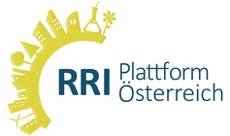Science, Technology and Social Transformation
Society shapes science, technology and innovation. At the same time technology and innovation are important driving forces of societal transformation, both in positive (“social progress”) as well as negative ways. Our research group investigates the mutual interdependency of science/technology and society as well as the societal preconditions, possibilities and limitations to govern related issues. We conduct empirical research on emerging and/or contested research and technologies linked, e.g., to health, beginning- and end-of-life situations or security and surveillance, especially focusing on their societal impacts. Besides, we monitor emerging technologies and work on the concepts and empirical basis of Responsible Research and Innovation (RRI) and Open Innovation. We build on a longstanding experience with international and national research projects on ethical, legal and social aspects (ELSA) of life sciences, RRI, citizen participation in R&I, and the role of experts and policy makers in R&I policy.
Our group aims at producing excellent scientific output for dissemination in international peer reviewed journals and conferences as well at providing practical knowledge to different societal actors including policy makers (e.g. the EC, ministries), stakeholders (e.g. universities, NGOs), and the broader public. Techno-scientific advances require researchers, political actors and individuals to reflect, discuss and decide on the development, implementation and regulation of emerging and at times contested research and technological areas. Thus, we want to actively include different societal groups and stakeholder into our research efforts and engage them through meaningful participatory measures.
Member of:




